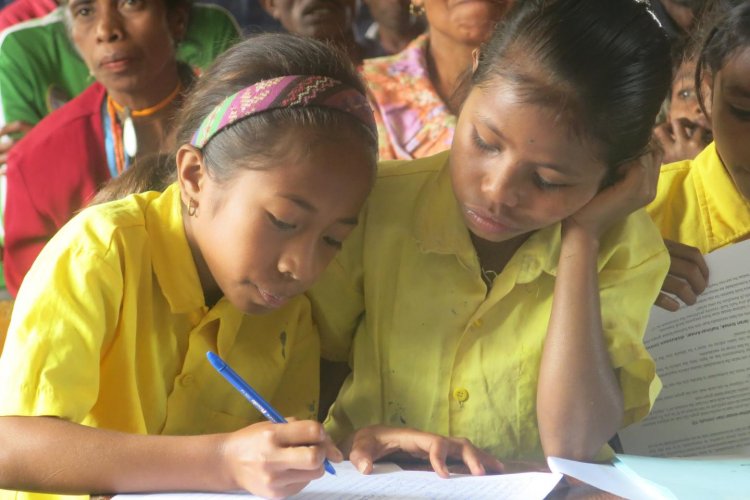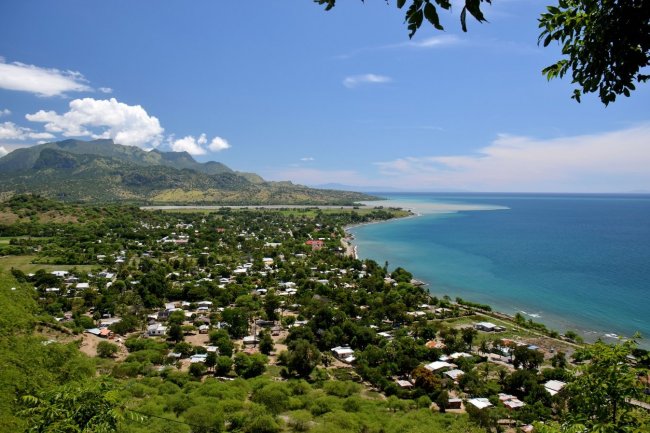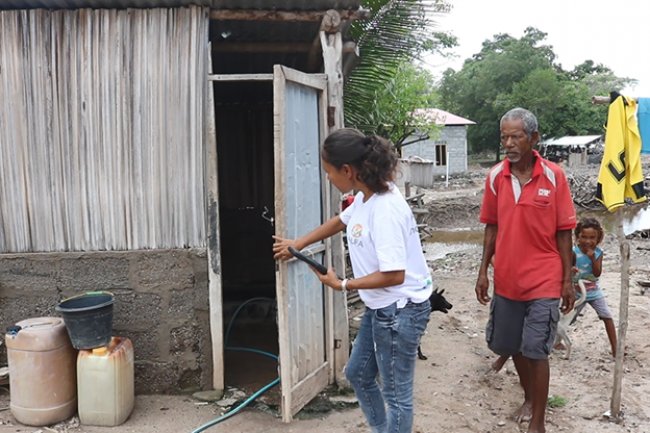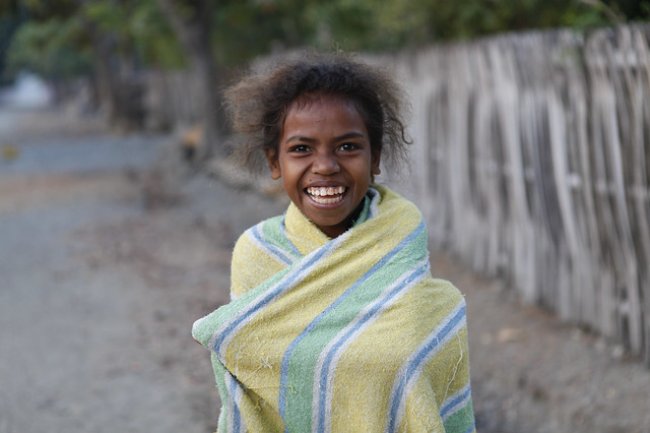Water, Sanitation and Hygiene in Schools: Bringing communities together in Timor-Leste
“The toilets are broken. We can use them but they are not in good condition and we have to carry water to fill the tank,” says 11-year-old Mangauda dos Neis da Suria, describing the condition of water, sanitation and hygiene (WASH) facilities at her school, Horaiquic Basic Education School in the Ainaro Municipality (district).

“We have toilets but no water comes to our school and it is difficult to get water. We have to travel a long distance to collect water and bring it to school,” says Adaesizo (10), a student at Biluli Basic Education Filial School in the Ermera Municipality.
Horaiquic Basic Education School and Biluli Basic Education Filial School are like many schools in Timor-Leste where water sanitation and hygiene facilities are in a poor condition, often not functioning and some without a running water connection. Nationwide, 40 per cent of basic education schools covering Grades 1-9 lack access to an improved water source; 70 per cent have toilets, although a significant percentage of these facilities (30 per cent) are partially functioning or not functioning at all according to the Ministry of Education’s latest data (EMIS 2015).
“We have no water or soap,” says Fransisco, a student at Biluli Basic Education Filial School. Limited availability of water and soap in schools also means that children and teachers do not always practice hand washing with soap before eating and after using toilets during school hours.
UNICEF Timor-Leste/2017/emartins. Community consultation on the importance of maintaining school water and sanitation facilities. Photo credit
Community cooperation is key
“This situation is largely a consequence of a lack of awareness and ownership by the community, as well as poor operation and maintenance practices,” says Eusebio Martins, UNICEF’s WASH Officer. To address this situation, UNICEF is supporting the Ministry of Education with the construction and rehabilitation of school water, sanitation and hygiene facilities in remote areas, by engaging community members in selected villages of the Ermera and Ainaro Municipalities.
The WASH in schools initiative provides communities and families with knowledge to sustain sound practice and promotes responsible use of facilities that can be translated into life-long practices. “This programme is important for our children, our community, and is motivating us to do more ourselves,” says, Martio Dos Neis, a parent.
“Once school construction is complete it is important that the responsibility of maintenance not only lies with the teachers and students,” says Antonio R. Arauji, an official from the Ministry of Education. He emphasizes importance of engagement of parents and community members for students’ wellbeing.
Raising awareness among the community will help ensure the sustainability of water and sanitation facilities for future generations. “Good facilities will increase enjoyment for students and teachers, making it easier to facilitate classroom learning,” says Maria Gentrudes, grade 6 teacher at Biluli Basic Education Filial School.
Biluli Basic Education Filial School in Ermera Municipality is one of the six schools that will soon have a new three-classroom building with toilets and hand-washing facilities including sanitation facilities. In consultation with the community connection to the community water source is also being constructed to ensure water supply for the school.
“We are very happy to have a new school,” says 9 year old, Alda da Conceicao Xavien a student at Horaiquic Basic Education School. “Now we have a school we must learn how to maintain it,” says Alcino Pereira de Jesus Tilman, the Village Chief of Horaiquic, Ainaro Municipality. With the sanitation and hygiene facilities students, especially girls, will no longer have to feel uncomfortable with the condition of water and sanitation facilities.
Evidence from various studies have shown that improvement in WASH facilities in schools can have a positive impact on enrolment, reduce student absenteeism and therefore lower repetition. Having functioning separate toilets for boys and girls alongside hygiene promotion is extremely important for school attendance and retention, especially among adolescent girls.
Looking towards the future
The enthusiastic response from participants is encouraging, as School Water and Sanitation (BESI) Teams being set up for the first time in schools in the project areas. The BESI team is comprised of teachers, parents and students. BESI Team will monitor and repair minor damages to school property in accordance with the national WASH in Schools Guidelines of the Ministry of Education, developed with the support of UNICEF.
While explaining the importance of capacity building of the BESI team, UNICEF WASH Officer, Eusebio Martins, says, “The team members will be trained on how to identify and address problems through regular monitoring in order to successfully maintain water and sanitation facilities and school buildings.”
UNICEF Timor-Leste/2017/cmcintosh
Thanks to the Japan Committee for UNICEF for their valuable support, this will serve as a model for other municipalities to follow and a way to ensure that schools are capable of providing a safe, healthy and conducive environment for children to grow, learn and thrive.
This is an important step for Timor-Leste towards meeting its commitments to the Sustainable Development Goal (SDG) 4 on quality education, and SDG 6 on clean water and sanitation.


